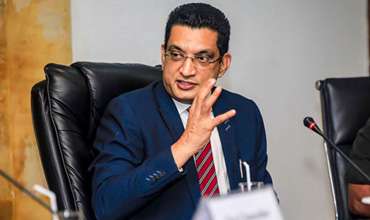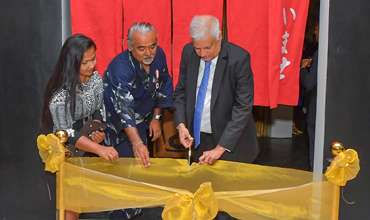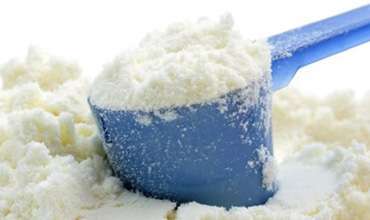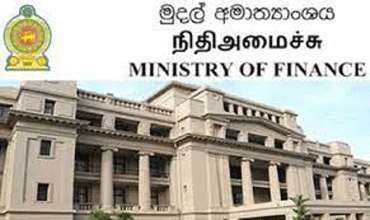Fertilizer challenges: Rice and other crops output likely to fall by over 40%, agriculture experts say
Sri Lanka Agripreneurs’ Forum provides insights on new regulations on organic and inorganic agri-inputs
Sri Lanka Agripreneurs’ Forum (SLAF) recently conducted a webinar on “Insights on new regulations on organic and inorganic agri-inputs – how to face the real-world challenges as an entrepreneur”.
In a media release, SLAF said this discussion brought clarity on areas such as the current status of the policy changes instigated since April 2021, national perceptions of the change to the agrochemical importation policy in the short, medium, and long terms, effective use of chemical fertiliser, and plant nutrient management, export market opportunities for organic products.
The virtual gathering was addressed by speakers - Ranjith Bandara- Chairman, CropLife Sri Lanka); A.S.M Roshan, Assistant Director-Agribusiness Development Unit, Department of Agriculture; Suresh De Mel- Chairman, Export Development Board and then by the panelists Suresh Ellawala- Chairman, Lanka Fruit & Vegetable Producers Processors and Exporters Association and Jayantha Rajapaksha- Executive Committee Member of the Sri Lanka Agripreneurs’ Forum.
It was stated that currently quota-based importation is allowed for the specialty fertilizers under 6 HS codes but it was highlighted that the roll-out of this system hasn’t come to fruition yet, leaving producers under duress.
During this part of the discussion, clarity was brought to the overall need and utilisation of agrochemicals in Sri Lanka with the dependency of each sub-sector such as herbicides, pesticides, fungicides etc. As the dependency of synthetic fertiliser is common across all sub-sectors of the agricultural market system (except for less than 2% of the organic producers), pesticides were highlighted as the most used agrochemical along with herbicides. The importance of finding suitable replacements for the existing agrochemical demand or allowing a well-regulated and monitored quota of imports into Sri Lanka was discussed as an utmost priority of the NFS and ROP.
The importance of accounting for accurate, potential yield loss was discussed using projections; Current cumulative production of rice, vegetable, OFC, maize is 6,046,768 MT as of 2020/2021 season but this value might be 3,507,125 MT in 2021/2022 season accounting for a 42% drop country-wide. In conventional agriculture, 14% of yield loss is due to weeds, 15% of yield loss is due to insect damage and finally, 13% of yield loss is due to fungal damages. These were the main parameters discussed as the basis to this projected loss in yield. Few parameters were discussed in detail, the release said.
“In hindsight, the importance, and the need of activating the proposed, quota-based importation of specialty fertilizers and agrochemicals were discussed to remedy the forecasted loss in yield specially during the upcoming Maha season and then in the medium term. Few of the importers and agribusinesses discussed the challenges they have been facing due to the lack of clarity of the current process of granting permits for importing. Answering these concerns, speakers elaborated on the newly introduced system that’s in place to import a selected number of agrochemicals while agreeing to the length and possible real-time challenges of it. Further, speakers highlighted that according to the calculations NFS has taken into account, importers will only be able to cater to 25%-30% of the total requirement of specialty fertilizer and agrochemical demand in Sri Lanka by Jan/Feb 2022 for the upcoming Maha season. Speculations were made on the process of commercial importation of bio-pesticides as these need to follow the ROP guidelines of new item registration; the new biopesticide importation process in reality might take around 4-5 years to flow smoothly,” the release said.
Speakers further elaborated that producers are expected to plan their fertiliser and agrochemical requirement well in advance, because even the quota-based importation system is likely to progress through a mandatory 3 month period to acquire the approvals/ clearances, logistical arrangements, and final deployment in Sri Lanka. The importance of taking factors like pandemic caused distress and its impacts causing delays and changes to the logistical arrangements during importation was highlighted as a must-think for the private sector- agribusinesses, government, and policymakers.
An intricate level discussion around the questions raised on testing samples and processes to be followed while importing quota-based fertiliser and agrochemicals, a certain degree of uncertainty was tabled by the speakers as well as the audience, as it is seen as a complicated and high-tech process which Sri Lanka might have limitations to achieve.
Rigorous training and creating awareness among growers, were identified as a mandatory requirement to adopt the new regulations successfully - for example, it creates an opportunity for the relevant stakeholders to create and popularize biotic alternatives to the users of conventional agrochemicals.
As the majority of the agri producers in Sri Lanka are rural based, with limited access to clear information, a smooth and effective outflow of valid and viable new information might be viewed as an opportunity to grasp their attention towards a successful implementation of the newly proposed agricultural policy. The urgency, timeliness, and the expected effectiveness of such programs were discussed by the speakers during the session.
The Department of Agriculture has been the successful promoter of the SLGAP certification system that has been in operation for the past couple of years, benefiting Sri Lankan farmers. One of the distinguished speakers elaborated on the success they have been witnessing through the rollout of the certification and how its learnings may become timelier now than ever. A plant’s nutrient utilization is a complex process that is supported or discouraged by many factors. As commercial producers, farmers should be insightful on how to promote effective nutrient utilization by plants as opposed to the overuse due to free availability in-abundance. As per the speaker, growers should consider the information revealed by the tested soil profiles and then apply nutrients to bridge the gap. The concept of Integrated Plant Nutrient Management (IPNM) and Integrated Pest Management (IPM) is the two-pillar concept that governs the SLGAP certification while ensuring the quality of the final product. With the constricted availability or in other words, with more regulated/ limited availability of synthetic fertiliser, it’s apparent that the use of it will have to be more effective than before. Usage of organic manure to the soil was highlighted by the speaker as one of the best measures to enrich and improve the soils while increasing the absorption of synthetic fertilizers. IPM was also discussed as the best system to improve the yields achieved, through IPNM and to further enhance it. The core notion of IPM is to use physical, cultural, biological controls as the first and second responses to a pest/disease attack and only venture out to chemical controls as the last resort. According to the data of the Department of Agriculture, farmers with SLGAP have reduced the agrochemical and fertilizer use by 50% compared to conventional farmers - this is an evident success story of IPM and IPNM packaged into one certification.
Another facet of the discussion elaborated the opportunities presented by the export markets. A very insightful session was conducted by the Chairman of EDB. The growth of vegan and meatless meat markets and the growth of organic-certified product markets has an explosive growth rate which opens up opportunities for Sri Lankan organic-centred agribusinesses. EDB is currently opening up helplines and creating opportunities for exporters to receive useful and relevant consultations. EDB further supports stimulating the exports of value-added, top-shelf spices to premium markets.
-
Still No Comments Posted.














Leave Comments